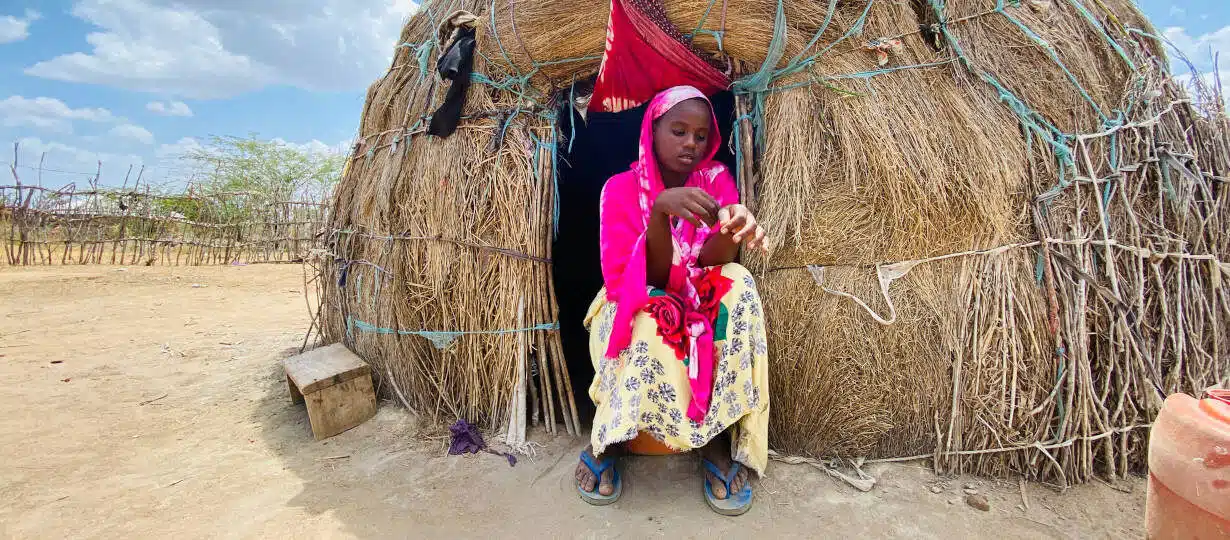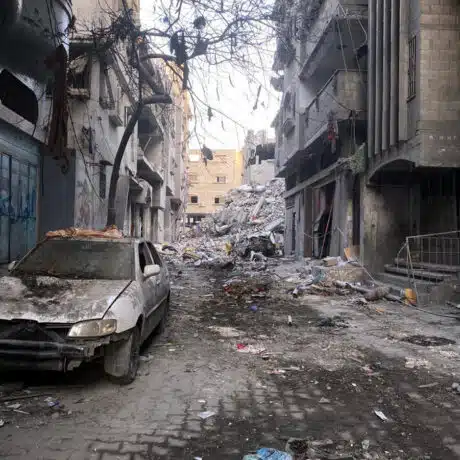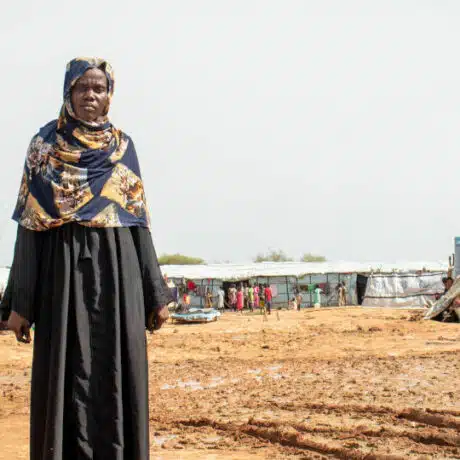News and Stories - Emergencies - 16 December 2022
Drought forcing girls out of classroom in Kenya

As a headteacher in Kenya’s Tana River County, Christine has seen first hand the huge toll the drought is having on girls’ rights in the region, including their right to education.
“I have a class with not one single girl. These girls are either married or at home.”
According to Christine, enrolment levels at her school are usually an even split of girls and boys in the early years, but once girls reach grade 5, the majority drop out, due to either a lack of school fees, to help their parents with the household chores or because they have been married off.
This year has been no exception – in fact, an above average number of girls have left school due to the ongoing drought conditions. “The girls are the ones who do all the household chores,” Christine explains. “It becomes difficult for these girls to do all this work then come to class, so they opt to drop out of school so that they can keep up with their chores.”
13-year-old Dunia is just one of the many girls on the brink of giving up her education. She wakes up at the crack of dawn to complete her chores before she goes to school, often on an empty stomach. “I wake up at 4am, sweep the home and wash the dishes before I go to school. I am always hungry,” Dunia says.
In some communities, families have simply stopped sending girls to school as they cannot afford to pay school fees for all their children, and educating sons is prioritised over educating daughters. “If you look at these girls, it is not their wish to leave school but they are forced to,” Christine tells us.
In addition to forcing them out of school, drought conditions also heighten girls risk of gender-based violence, sexual exploitation and abuse. In some Kenyan communities, child marriage is on the rise, with families marrying off their daughters to reduce the demand on their own meagre resources, and in exchange for money that they can use to buy food and other essentials.
Across the Horn of Africa, Plan International is urgently scaling up life-saving food, nutrition, school feeding and child protection programmes.
“In order to mitigate the effect of the drought, Plan International is providing food to schools under our school feeding programme to ensure children remain at school,” explains George Galugalu, Plan International’s Project Coordinator in Tana River County.
“There may be no food in their homes, but when they come to school, they can get food and continue with their classes.”
Plan International is calling on both the government and humanitarian agencies to urgently scale up operations to bring food, nutrition, clean water and health services to communities. We must act now if we are to avert large-scale loss of life in the Horn of Africa in the period ahead, while working to ensure that communities, and girls in particular, develop greater resilience against future climate shocks.
Upholding girls rights and the progress that has been made over the years is always at the forefront of Plan International’s work and, according to Kate Maina-Vorley, the Country Director for Plan International in Kenya, must be prioritised in all humanitarian responses to the hunger crisis.
“I cannot understate the ravages of drought and the effects of COVID-19 and what that means for girls, their families and children,” she shares. “We’ve made so many gains over the years in advancing gender equality but with COVID-19, the locust infestation and drought, we have seen these gains being eroded. It is important that we do not forget the plight of girls in the midst of all these humanitarian emergencies that we are seeing.”
School is often the safest space for girls. This Christmas, your generosity can help a girl hold onto her education – and all that it brings.
In regions hit by natural disasters, conflict and famine, your support will help keep girls safe from gender-based violence, forced marriage, female genital mutilation, and early pregnancy.
You can help her hold onto her dreams. Donate now.





